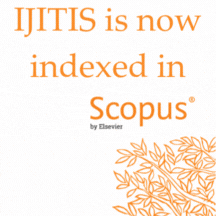COVID-19: Traffic Restrictions Incidence on the Service Life of Pavements in La Plata City of Argentina
DOI:
https://doi.org/10.15157/IJITIS.2020.3.4.550-559Keywords:
Pavements, Service Life, Road Engineering, COVID-19Abstract
The mandatory preventive social isolation imposed in Argentina due to the COVID-19 pandemic had many effects on the daily life of all the inhabitants. Behind the negative aspects caused by COVID-19, there are also beneficial effects for the population. One of them is the decrease in the movements of people to attend to their basic needs, which had been reflected in a lower volume of urban traffic in the cities. Such a decrease in demand would lead to an increase in the expected service life of pavements because they are structures calculated to support a certain number of load axes. Therefore, road maintenance policies to be carried out by the corresponding road departments could be deferred over time, without that representing a decrease in the expected bearing quality. The problem then lies in establishing which the maximum period feasible to defer these tasks is. One way to establish that value would be to link the decrease in vehicular traffic with the decrease in people's movement in terms of certain activities. This can be done with the data collected by Google of those activities, which are enabled to be used for the above analysis. The present paper is based on this analysis carried out for the city of La Plata, the capital of the Buenos Aires province in Argentina, where the LEMaC is located. This analysis structure can be reproduced in other urban areas or rural road networks with slight modifications and including the corresponding local data.









